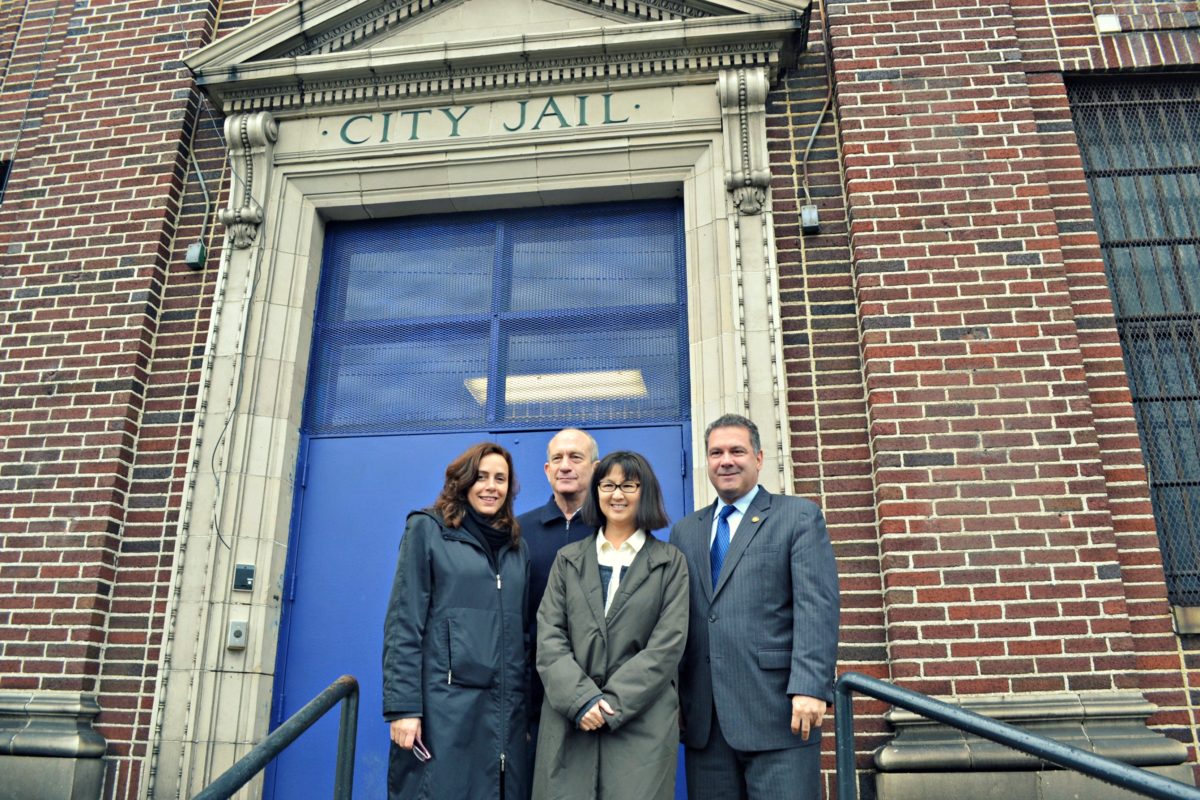Alvin Clayton, owner of Alvin & Friend”™s Restaurant in New Rochelle, hired a Con Edison contractor two months ago to conduct a lighting audit inside his six-month-old restaurant.
In the kitchen and bathrooms, motion sensors were installed that shut off lights and conserve energy after 30 seconds of no motion. But Clayton said that wasn”™t enough.
He plans to have Con Edison install light emitting diode (LED) bulbs in the next couple of weeks.
“Regardless of if you have 10 people or 100 people in your restaurant, the electricity is going to be on at all times,” Clayton said. “It”™s one of the biggest costs we have in the restaurant industry. So if you can find ways to save on energy, it”™s always a big plus.”

Clayton said he will install lower-wattage bulbs for chandeliers and sconces at the restaurant. The bulbs Con Edison plans to install will be no higher than 25 watts.
The ever-increasing cost of electricity could zap the resources of any business. With winter fast approaching, as businesses turn up the heat and see a spike in oil costs they also dim the lights and seek creative ways to end the often-shocking cost of powering their factories, restaurants and office spaces.
Westchester businesses have been increasingly looking to assess their energy use and see where there are opportunities to use less power and in turn decrease their operational costs.
New York State Energy Research and Development Authority, or NYSERDA, and Con Edison”™s Green Team, a group of energy efficiency experts, are among the options for businesses looking for energy assessments, advisement and recommendations to reduce electricity consumption.
Clayton, for example, calculated his restaurant would save about $400 on its electric bill each month with lower wattage bulbs, giving him more flexibility around the holidays to turn on Christmas lights. He also plans to install a light-up sign at the front of his restaurant that says “Alvin & Friends” in soft LED bulbs.
Clayton acknowledged the challenges small businesses face in taking the initiative to seek programs that will provide expert advice on how to save energy because of the uncertain costs from aspects like purchasing new bulbs or technology.
“I think people are a bit afraid of change,” Clayton said. “It”™s always easier to continue with the status quo.”
Con Edison offers free energy assessments for small businesses, and it can provide financing to help business owners like Clayton pay for certain upgrades. In general, Con Edison can cover up to 70 percent of the cost of installing energy saving devices.
NYSERDA provides energy assessments, incentives for purchasing and installing energy efficient equipment and financing for small businesses. NYSERDA has two low-interest loan payment options for its services.
Both NYSERDA and Con Edison provide free assessments for small businesses that have an average peak monthly electric demand of 100 kilowatts or less. NYSERDA”™s free assessments are available only to companies employing 10 or fewer people, said Frank Lauricella, director of business development of The Daylight Savings Co., a contractor for NYSERDA.
“There”™s been a steady growth of interest in businesses getting energy assessments and making improvements through NYSERDA,” Lauricella said. “Any time gas fuels go up [in cost], you get spikes in businesses interested in the program. Usually we get spikes once the heating bills come in or air conditioning bills come in.”
For small businesses with more than 10 employees, NYSERDA provides flexible cost share programs. Clients have the option of getting a full energy assessment of the entire facility or receiving a specific, less costly study to be conducted on certain equipment.
Some small businesses have grown leery of energy efficiency programs. Len Vallender, president of Fenbar Precision Machinists, Inc. in Thornwood, said Con Edison changing his light bulbs to LED hasn”™t saved his company on its electric bills because the manufacturing company operates machines that require high levels of energy around the clock.
“These machines run all day nonstop, so I have a bigger electric output,” Vallender said. “The electric bills are high because we”™re charged based on our highest use for the whole month. That can get expensive when you turn all the machines on at one point. But we can”™t just come to work and leave the machines off. They”™re supposed to be making parts.”
Allan Drury, a spokesman for Con Edison, suggested companies that haven”™t seen large savings from LED bulbs might consider light dimmers or motion sensors in empty rooms, set their computers in sleep or hibernation mode, use energy-management systems to control the starting and stopping of heating and cooling equipment, and prevent heat loss by sealing air leaks around windows and door frames with caulk or weather stripping.
Matheis, director of corporate marketing communications at Curtis Instruments Inc. in Mount Kisco, said his corporate office uses automatic light sensors, energy efficient lighting and solar energy.
“Our building is only about 10years old, but it”™s built very energy efficient,” Matheis said. “For example, the windows have double panes. On cold days, they don”™t allow the cold to come in or heat to go out. All our copiers and printers have energy savings features built in.”
Curtis Instruments is also a member of Bedford 2020, a nonprofit organization that provides energy efficiency programs to residents and businesses.
A similar organization that reaches out to small businesses is Westchester Green Business Challenge, which is partnered with The Business Council of Westchester and designed to move companies down the path toward environmental sustainability while improving performance and saving money.


















